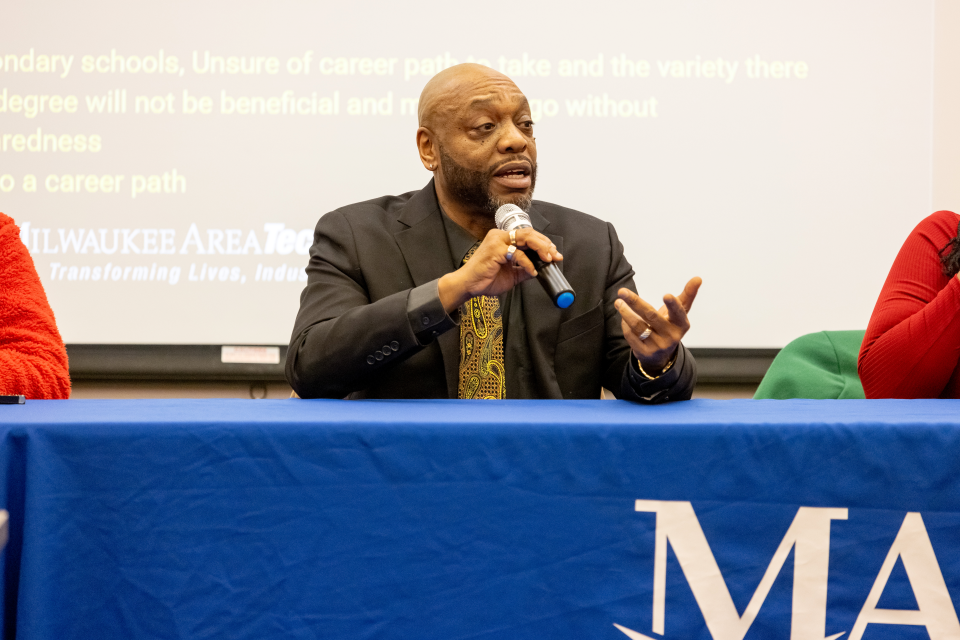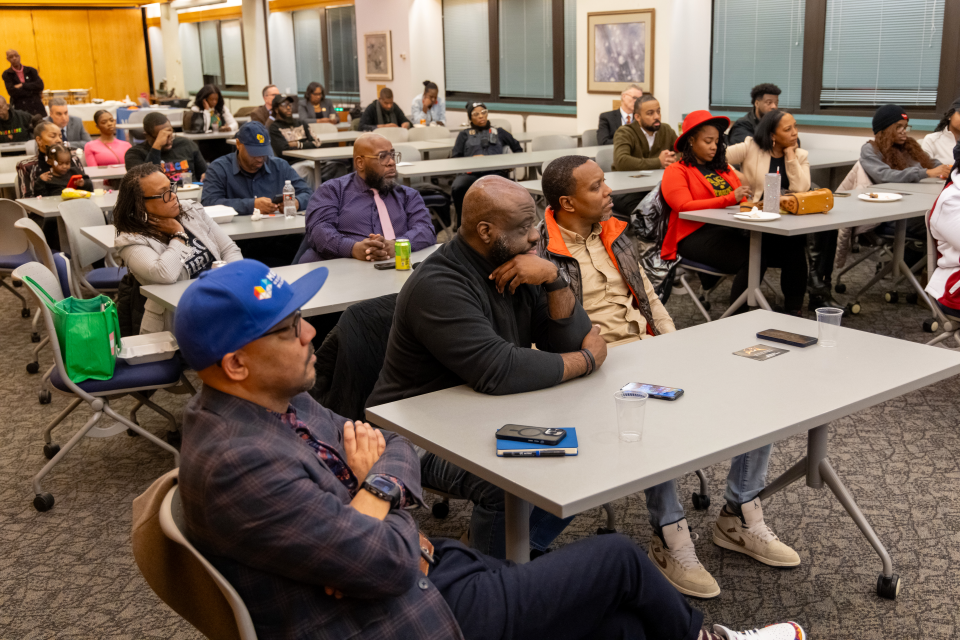
For years, the streets were Kenneth Ginlack’s sole classroom.
He sold drugs. He used drugs. He watched prostitutes work on the where block he lived. He committed crime. He got kicked out of one high school. He became a father as a teenager.
As a young Black man constantly in trouble, college, he said, wasn’t his scene.
“The statistics said I should have been in prison or dead,” Ginlack said. “I was voted least likely to succeed. I didn’t walk or talk like all the others heading to college.”
But as he got clean, got older and got wiser, Ginlack knew he needed to provide for his wife and three children. So he headed to Milwaukee Area Technical College.
At MATC, Ginlack got financial assistance to attend classes, attentive support from his instructors and a sense of purpose that propelled him to earn a Human Service Associate degree in 2012 and win the President’s Award.
Today, Ginlack holds two college degrees and works as a licensed clinical social worker, a clinical substance abuse counselor and an independent clinical supervisor.
Ginlack was one of five current and former MATC students who shared their educational experiences on Tuesday, February 11, at the Downtown Milwaukee Campus. The panel discussion was part of the college’s Black History Month celebration.
“Historically, higher education has not been kind to people of color,” MATC President Anthony Cruz, Ed.D., said at the event. “MATC has support systems in place, but we can do better. We need to work together to address these issues. I believe higher education is a game changer. It's the best way to level the field.”
See more photos from the event
Panel participant Octavia Manuel-Wright, Ph.D., knows the difference a supportive college can make. By the time she was 18, she had two children. “They became my motivation,” she said.
She enrolled in MATC’s registered nursing program, received financial aid, was awarded a minority student grant, got tutoring, joined the Black Nurses Association and had flexible instructors. She earned her nursing degree in 2002. Today she operates a mental health clinic in Milwaukee and teaches nursing part time at MATC.
“I was able to do that because I got support,” she said.
The three current students on the panel have received strong support thanks to the Ellen and Joe Checota MATC Scholarship Program, full-ride assistance designed to get students through classes quickly and into the workforce.
The Checota scholarships pay for tuition, books and supplies, childcare, food, transportation, and if necessary, student housing.
“With all of that, there isn’t much to worry about,” said William Musoke, an Informational Technology student from Burkina Faso in Africa. “If you need help, you need to understand you need help. Some people choose to not speak up. But a closed mouth will never be fed.”
Musoke also joined the Men of Color Initiative, a group dedicated to furthering the academic and social success of minority men.
Royalty Grace dropped out of high school more than 20 years ago. But she earned her General Educational Development (GED) diploma and now is in college. “This might seem simple, but it will not be easy,” said Grace, who is in the Entrepreneurship program. “You need to trust your gut and know you deserve to be in this space.”
Willette Honey, the only woman and the only person of color in her academic program, Refrigeration, Air Conditioning and Heating Service Technician, said she has been through highs and lows so far.
“I had some fears about going to college,” she said. “But I have learned to stay focused.”
See list of Black History Month events at MATC
About MATC: As Wisconsin’s largest technical college and one of the most diverse two-year institutions in the Midwest, Milwaukee Area Technical College is a key driver of southeastern Wisconsin’s economy and has provided innovative education in the region since 1912. More than 30,000 students per year attend the college’s four campuses and community-based sites or learn online. MATC offers affordable and accessible education and training opportunities that empower and transform lives in the community. The college offers more than 180 academic programs — many that prepare students for jobs immediately upon completion and others that provide transfer options leading to bachelor’s degrees with more than 40 four-year colleges and universities. Overwhelmingly, MATC graduates build careers and businesses in southeastern Wisconsin. The college is accredited by the Higher Learning Commission.

